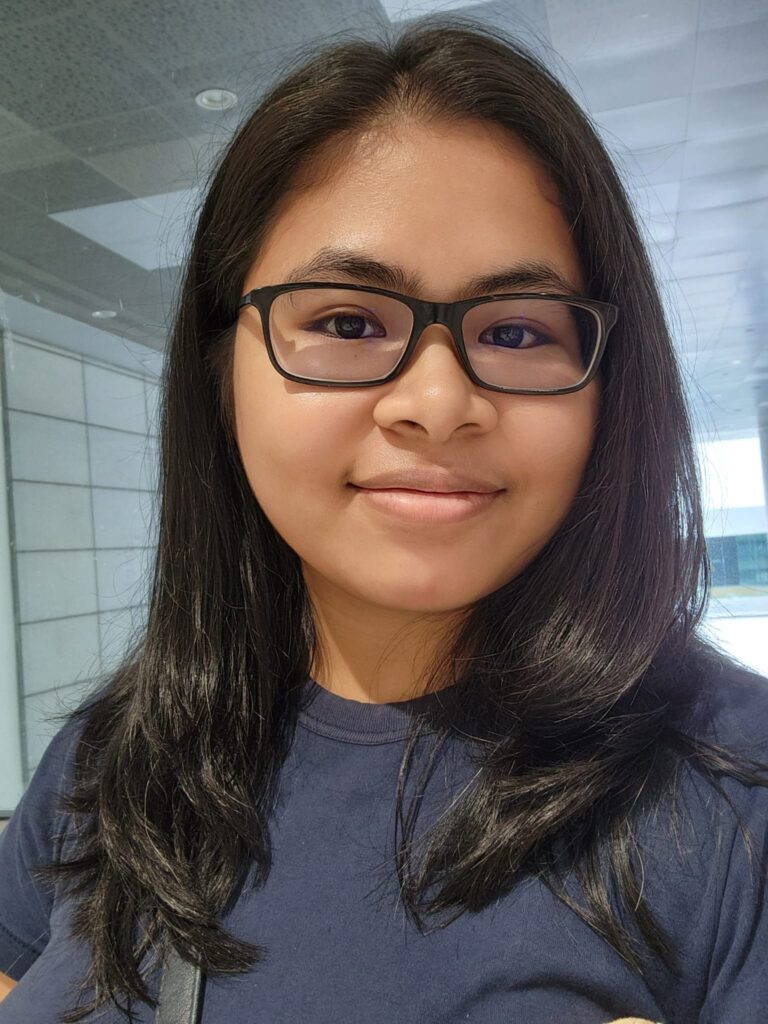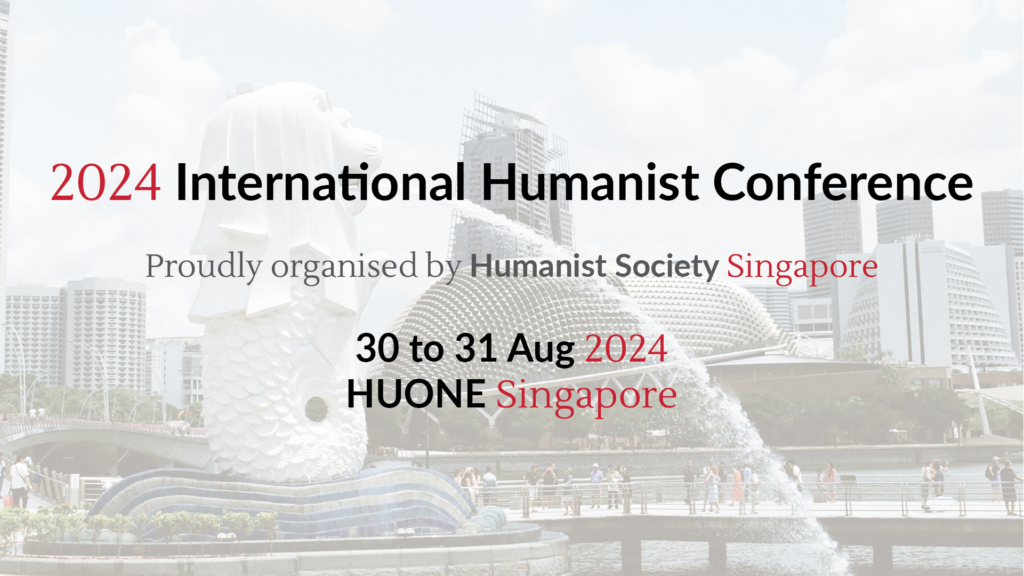
Ashwini and her mother, Norhaiyah [ Nora she like to be called ] are active volunteers with the Humanist Society. Nora is the President and Ashwini is her trusty Secretary. Together, they ensure that operations run smoothly and handle everything from the odds and ends to the planning of big events. Ashwini shares her story:
Spiritual but not religious
Ashwini prefers the label of “agnostic” as she considers herself a spiritual person. The 25-year-old believes there is a higher power out there, although she would not call it a god per se.
“It is something that is out there controlling what is happening in the world and how we behave, how we lead our lives, how people treat each other, what life events we face and the people we meet,” she said.
“I wouldn’t say I am idolising this energy form, more so of accepting that it is there and just living together with it. And knowing that we may never be able to explain what this energy form is, but it is just there to keep us alive and sustain us humans.”
Growing up in a Hindu family, there were many things in Hinduism that she questioned, but karma—the belief that you reap what you sow—is something that has stuck with her until now.
“If you do something bad to someone else, someone else—not necessarily the same person—will do something bad to you,” she said. “I think that if I do good to other people, if I help them, if I support them, the good energy will come back to me somehow.”
“I might not expect it but it will come somehow, sometime. That’s why I try to be good as best as I can and not to hurt other people because it will eventually come back to bite me.”
She explains that karma is not necessarily about protecting your self-interest, it is also about being more aware and intentional with your choices, bearing in mind the impact of your actions on the people around you.
After all, we are all part of a deeply intertwined, interdependent whole; actions affecting one can have ripple effects on many.
Mental health – A cause that is close to her heart
Ashwini is very passionate about mental health and has even minored in Psychology.
During her first year of university, she had a panic attack brought on by the immense stress of adjusting to a new country. Only then did she start attending therapy and taking medication.
This marked a turning point for her and made her realise that mental health is indispensable. While she would not consider herself fully healed and happy now, she has found ways to manage her symptoms and thrive through meditation and journaling.
She is of the opinion that religion is unable to provide an adequate explanation for mental illness—the common refrain being a mentally ill person does not pray enough or is possessed by the devil. Ashwini feels these are not productive nor compassionate ways of seeing the issue, as it pins the blame on the individual for being unwell, when there could be underlying issues we are not aware of.
“Many people have the misconception that people with mental illness are weak and that their lives must be a living hell, but that is not always the case. Not all hope is lost, and if you find ways to cope with it you can also have a happy and successful life. Most crucially, you cannot battle it alone. Much like cancer or other physical illnesses, you need friends and family to support you in your journey to recovery,” she said.
Those who are alone tend to internalise their negative feelings which can be unhealthy and destructive, she adds. It is also vital to find positive avenues to express themselves, whether that be journaling, writing music, or anything that keeps them grounded.
Having struggled with psychological distress herself, Ashwini is sympathetic towards the plight of others in the same boat. She helps with the Society’s Peer Support meetings by coming up with discussion topics, actively contributing to the discussion and taking down notes of what had been discussed.
Doing good for goodness’ sake
Community service has always been a big part of Ashwini’s life.
When she was very young, Nora used to volunteer at a nearby children’s home, and Ashwini celebrated her birthday parties there, so she was close to some of the children growing up. Nora was a volunteer teacher and conducted fundraisers for the home. She even went above and beyond to take in some of the youths who had nowhere to go upon turning 18. She lets them stay in her house in Kuala Lumpur and trains them to work in her side business so that they can be self-sufficient. This way, they are given a second chance at life, a new purpose and a new future.
Inspired by her mother’s compassionate and selfless care for the less fortunate, Ashwini followed in her mother’s footsteps and joined her in tutoring the children during her secondary school days.
This experience stretched her capabilities; not only were some of the children hard to work with, being hyperactive and difficult to explain things to, this is compounded by her lack of training in teaching and managing children.
Still, she found it meaningful as she got to know each of them personally. She was touched by the tenacity and hopefulness of these children, how they were able to make something positive out of their less-than-ideal life circumstances. She hoped that imparting them with the gift of knowledge could make a difference in their lives.
Why volunteer with HumanistSG and not other organisations?
While not the most important part of her identity, being non-religious is still significant to her and she desires to be part of a community of like-minded friends.
Furthermore, she is not a fan of religious charities who seek to proselytise the vulnerable populations they are helping, as these beneficiaries are not in a position to reject the help due to their desperate circumstances. They essentially become captive audiences for the religious charities to impose their beliefs onto.
She is of the view that charity and volunteering are not the sole preserves of organised religion, as Humanists too desire to make a difference to society, compelled by an ethical duty to relieve suffering and demonstrate compassion and empathy to all.
“Doing good for goodness’ sake” is the Society’s motto and one that Ashwini firmly stands behind. She is hopeful that if people see humanists actively helping the community, they will realise that they are just as concerned about the welfare of others, and that they genuinely want to live symbiotically with the various religious communities and be part of the collective Singapore story.
Ashwini points to the manifold benefits of volunteering.
“It is not only the less fortunate who gain from exchange; by cultivating our compassion and generosity, we become well-rounded people. Invaluable friendships are forged,” she said.
“There is immeasurable joy in seeing your beneficiaries’ lives improving. We open our eyes to the gaps in our current society and learn about the ways we can help to ensure that the rising tide truly lifts all boats.”

| The Humanist Society (Singapore) will be hosting the 2024 International Humanist Conference on 30-31 August. This event is the most important event in the global Humanist calendar. Click this link for more details! |




